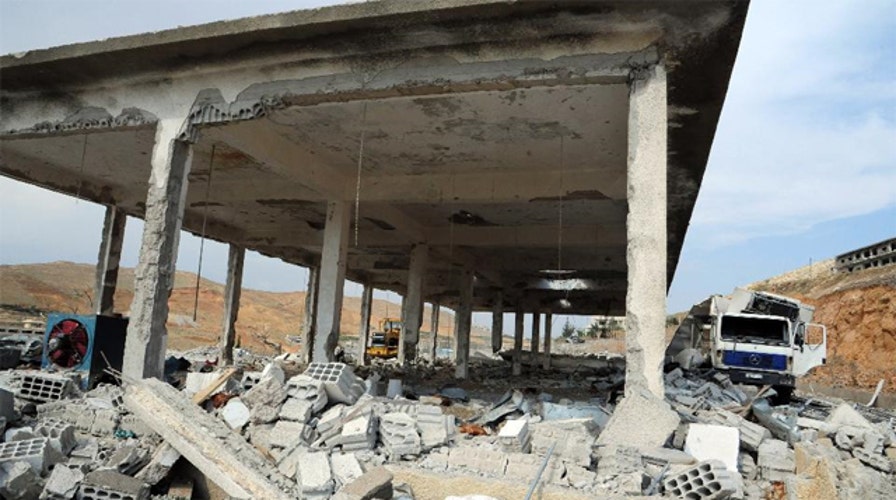Is Israel increasing its role in Syrian conflict?
Paul Floyd and Nick Heras on questions over airstrikes
Israeli airstrikes reportedly inside Syria demonstrate how the country once again is willing to go on the offensive against any potential threat, according to regional experts.
In an interview with Fox News National Security Analyst KT McFarland, analyst Paul Floyd and researcher Nick Heras both believe the strikes are significant in the fight against both Syrian President Bashar Assad and the terror group ISIS.
“Israel has demonstrated before and now that they are willing to strike in Syria at weapon systems that they perceive can be a threat back at home,” said Floyd, a military analyst at the geopolitical intelligence firm, Stratfor.
While the Israeli government would like to see the demise of the Assad regime, Floyd cautions officials are being strategic. “They have a self-interest in not necessarily enabling the rebels too much because in some ways the rebels could be a threat as much as the Syrian regime could be, so they are more interested in a balance of power.”
While Israel has not commented on the strikes, it’s believed they were trying to prevent weapons from getting to Assad’s ally, the militant group Hezbollah in Lebanon.
In May 2013, Israel Prime Minister Benjamin Netanyahu reiterated his country’s policy “to stop, as much as possible, any leaks of advanced weaponry to Hezbollah and other terrorist organizations. We will continue to act to ensure the security interests of the citizens of Israel.”
“Hezbollah empowered by the Iranians … has utilized the Syrian conflict to create another generation of Hezbollah using Iraqi Shia jihadists that were drawn to the Syrian war … creating a cross regional linkage that can be deployed in the future,” said Nick Heras, a research associate with the Center for a New American Security.
Floyd points to a logistical trail that Israel is following. “When Israel has seen reports of these weapon systems being delivered, especially if they are going to Hezbollah … they are quite willing to go into Syria and strike those.”
There is growing concern weapons provided to rebels fighting ISIS and the Assad regime could later be used to attack Israel or even the United States.
“One of the major conundrums in the Syrian conflict has been how to determine who are the good guys,” said Heras. “[Thus] making it very hard for us to determine whether once arms are introduced into the Syrian conflict, that they won’t be used in the future in a potential attack against Israel.”

